#josh washington aesthetic
Text


Love Is Love
A 2023 L.G.B.T+ Aesthetic Collection
Day 22 • Josh Washington Is Transgender!
Day 21 • Day 23
👇🏽 Pride Headcanons Below! 👇🏽
🩵•🩷•🤍
FTM, but is not afraid to be somewhat feminine on occasion. This is mostly within his friend group and with his sisters; He wouldn't feel comfortable going out in public presenting feminine.
Josh knew that he was trans by the age of 10. Because of his other meds (and because his parents were obviously pieces of shit), his family resisted the gender affirming care until he was 12. Then Bob Washington finally had enough of his son's "complaining" and took him to a specialist
His sisters were his biggest supporters besides Sam and Chris. Whenever he was feeling down on himself because he wasn't fitting "the mold" of a dude, Hannah and Beth would literally hurl compliments and jokes at him until he was laughing so hard that he would get stomach cramps! Sam was always his "therapist" friend, so he could vent to her about his issues and she would always been supportive of him. Chris... Chris just made Josh feel good. It didn't matter what the world said when they were together; It was like living in their own little bubble (*cough, cough* Josh has a big fat CRUSH 🥰)
For his 18th birthday, Josh got top surgery. It was a momentous occasion and, since he paid for it himself with his own money from film making gigs, it felt even better! It was like his parents were no longer lording over him and his wants/needs. Hannah and Sam made a gluten free cake in celebration and Chris came over everyday after school to play videogames and watch Slashers with Josh while he recovered! Beth begrudgingly kept up with Josh's homework while he was bedridden loll
Josh's bottom surgery was scheduled to be after he graduated with a Bachelors from college, right before he went on to get a Masters in Psychology... Obviously that never happened...
If Josh had to pick a song to describe his gender, he'd pick: Polarize by Twenty One Pilots
🩵•🩷•🤍
#until dawn#josh washington#climbing class#pride#transgender#pride month#trans#ftm#until dawn aesthetic#until dawn moodboard#josh washington aesthetic#josh washington moodboard#pride aesthetic#pride moodboard#transgender aesthetic#transgender moodboard#pride month aesthetic#pride month moodboard#ftm aesthetic#ftm moodboard#aesthetic#moodboard#love is love a 2023 aesthetic collection
26 notes
·
View notes
Text

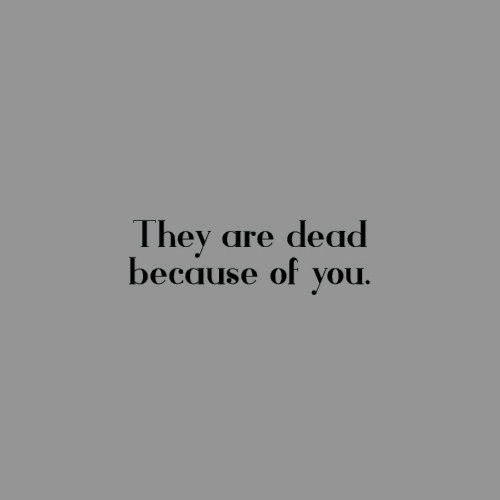


ᴊᴏꜱʜ ᴡᴀꜱʜɪɴɢᴛᴏɴ
"ɪ ᴍᴀᴅᴇ ʏᴏᴜ ʙᴇʟɪᴇᴠᴇ ɪɴ ᴛʜᴇ ᴡᴏʀʟᴅ ɪ ᴄʀᴇᴀᴛᴇᴅ, ᴀɴᴅ ɪ ꜱʜᴏᴡᴇᴅ ʏᴏᴜ ᴘᴀʀᴛꜱ ᴏꜰ ʏᴏᴜʀꜱᴇʟꜰ ʏᴏᴜ ᴡᴇʀᴇ ᴛᴏᴏ ᴀꜰʀᴀɪᴅ ᴛᴏ ᴠɪꜱɪᴛ."
#until dawn#josh washington#until dawn josh#until dawn moodboards#josh washington moodboard#josh washington aesthetic#supermassive games#🖤.txt
12 notes
·
View notes
Text



Ashley Chris

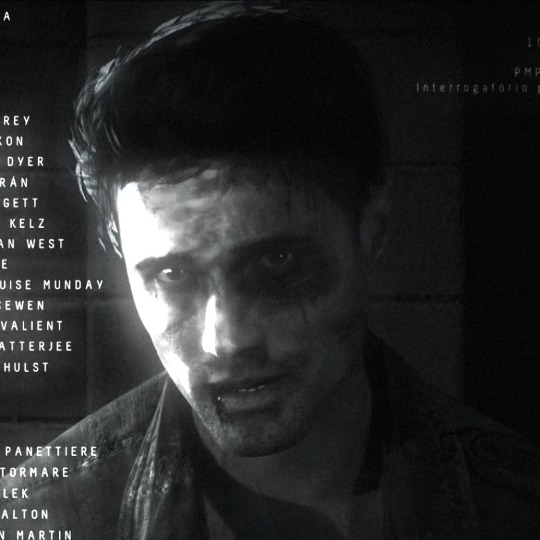
Jess Mike


Emily Matt


Sam Josh

𝐔𝐧𝐭𝐢𝐥 𝐃𝐚𝐰𝐧 𝐂𝐡𝐚𝐫𝐚𝐜𝐭𝐞𝐫𝐬 𝐌𝐚𝐭𝐜𝐡𝐢𝐧𝐠 𝐈𝐜𝐨𝐧𝐬 ⊹ ࣪
Until Dawn (2015)
“You need to go down to the mines.”
#until dawn#until dawn remake#supermassive games#ashley brown#chris hartley#jessica riley#mike monroe#emily davis#matt taylor#sam giddings#josh washington#aesthetic#icons#messy layouts#horror games#moodboard#match icons#matching icons#pfp icons
184 notes
·
View notes
Text

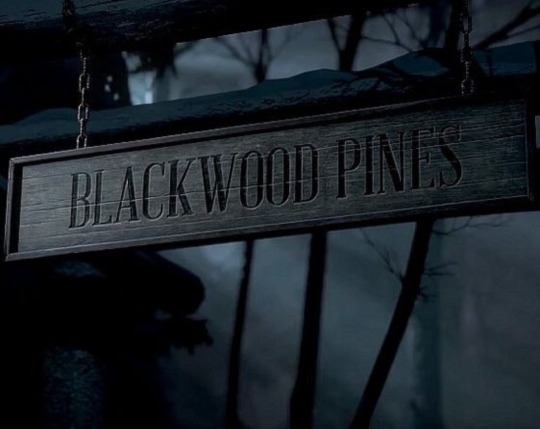

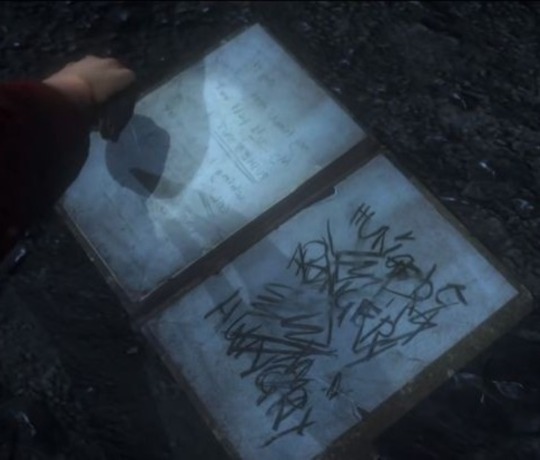
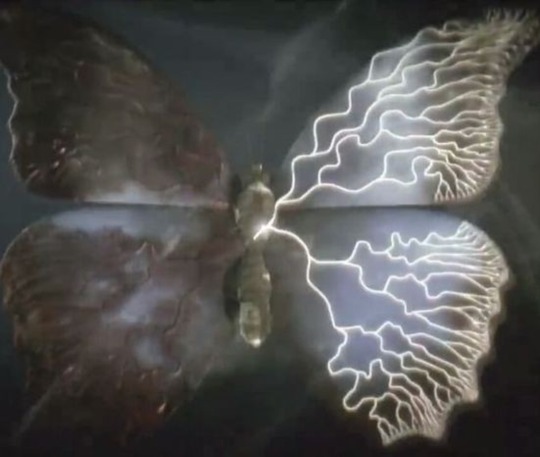

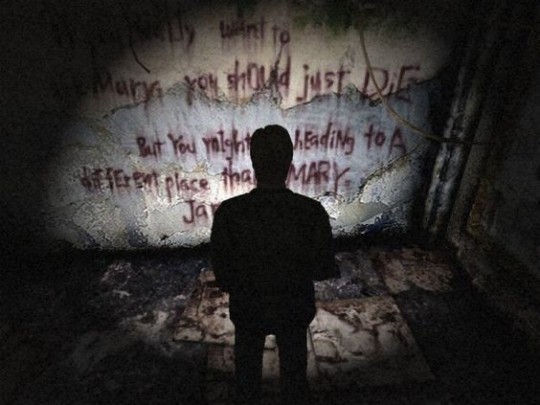

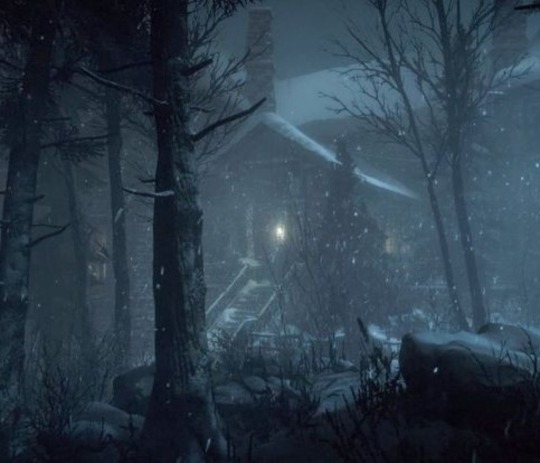
I just finished my first playthrough! Sam, Mike, Emily, Chris and Ashley survived! Mike really grew on me after Jessica died lol.
#I LOOOOOOVE THIS GAME#gonna make a few more probably#aesthetic#game#game aesthetic#horror#horror aesthetic#horror games#until dawn#sam giddings#chris hartley#josh washington#mike munroe#emily davis#beth washington#horror art#horror game aesthetic#horror game fanart#survival horror#video game#video game aesthetic#dark#dark moodboard#dark aesthetic#black#black moodboard#black aesthetic
76 notes
·
View notes
Text




The Wendigo in Until Dawn
#until dawn#wendigo#horror games#horror movies#horror aesthetic#horror#early 2010s#2010s horror#2010s#dark aesthetic#sam giddings#josh washington#jessica riley#ashley brown#emily davis#until dawn chris
19 notes
·
View notes
Text

(by Josh Hild)| Washington, US
#upl0ad5#landscape#vertical#Josh Hild#Point Defiance Park#Tacoma#Washington#United States#nature#aesthetic
11 notes
·
View notes
Text


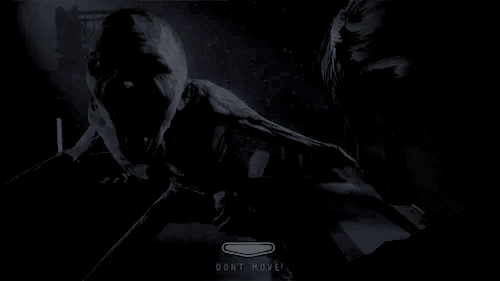
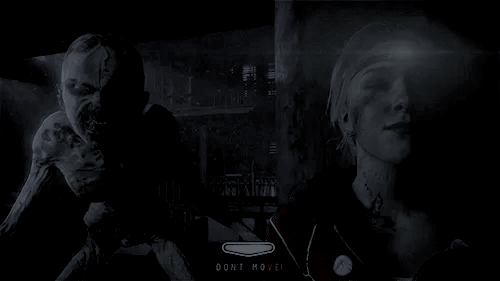
#until dawn#video games#gif#aesthetic#until dawn edit#jessica riley#emily davis#matt taylor#sam giddings#ashley brown#josh washington#michae monroe
18 notes
·
View notes
Text

Joshua "Josh" Washington
How does it feel? Do you enjoy feeling terrorized? Humiliated? I mean, panicked? All those emotions that my sisters got to feel once one year ago! Only guess what? They didn't get to laugh it off! No! Nope! No no no! They're gone!
#josh washington#joshua washington#until dawn#until dawn edit#until dawn moodboard#until dawn aesthetic#my edits
36 notes
·
View notes
Text







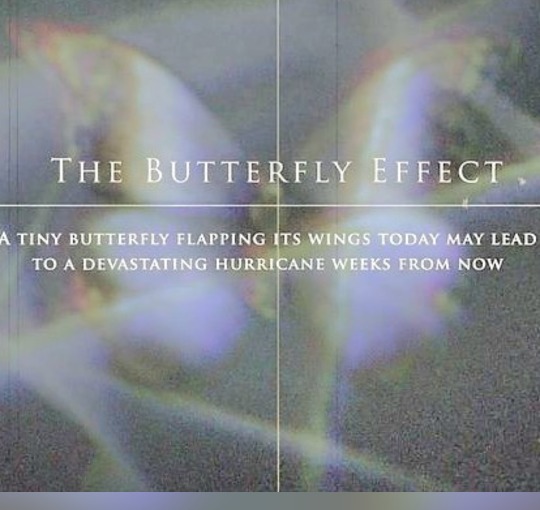

The Butterfly Effect 🦋
#carrd moodboard#until dawn#josh washington#rami malek#layouts#messy layouts#moodboard#weird aesthetic#tumblr grunge#random layouts
11 notes
·
View notes
Text


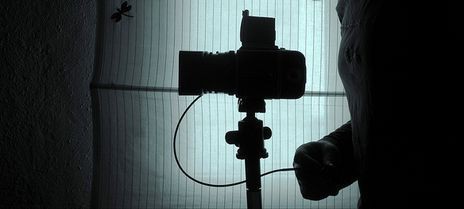



Joshua Washington
4 notes
·
View notes
Text
i think josh in general is a really visually driven person in general. i think hes really picky about how things look and i think hes also pretty sensitive to anything visually overwhelming. not exactly hyperphantasia, but close to it. he doesn't like bright lights and prefers to hang out in the dark, and also color codes almost everything
#i am jealous....#i am also a very aesthetically driven person and like to visually stim#but im pretty sure im on the aphantasia spectrum#txt#josh washington
5 notes
·
View notes
Note
black girl high femme reader request here 👄💅 can we get a black!reader who's aesthetic is super girly y2k w/ crazy ass boys gang. Maybe she's got a little attitude but is sweet w/ the boys?? Thank youuuuuu 🧡
A/N: oh god yes i LOVE y2k as a black girl and i want to do a fashion wardrobe reboot when i have the money, don’t care if it’s just a trend i love it
crazy ass boys gang + black!reader who loves y2k fashion
billy loomis: First off he loves brats, he really does. He doesn’t know what it is about that little attitude of yours but it gets to him. The way you dress is what first got him eyeballing you. If we’re being frank, how feminine you were made him think you’d be the perfect victim (problematic? uhm, yeah.) Local man who doesn’t know how to separate extreme attraction from his murderous urges please stand up. He started talking to you and decided he was going to go on a few dates with you first though. You’ve gotta know someone in order to make their nightmares come true when you’re killing them! But he fell in love with you instead >:((. He’ll be angry about that for a while, honestly.
josh washington: Thinks you’re a baddie. This is the highest compliment since he’s always around baddies. He can’t help it, it’s the natural order of things. He’s rich, funny, outgoing, and popular. He attracts hot people in droves. He’s only ever got eyes for you though. Thinks your attitude is well-deserved. If he looked half as hot as you he’d have an attitude too. Likes to watch you get ready when you two go out. Also likes adding new pieces to your wardrobe. The reward is watching you look so good (plus the kisses, those are great too.)
stu macher: He likes mean people so he peeps your attitude quickly and it makes him go ‘awooga’. You’ll assume it was your looks but no, it was your resting bitch face. He really likes your makeup. Loves it when you do a lip-liner and colored gloss look. Always chases you around trying to make out with you because he likes the shine of it getting smeared everywhere. Gets you a lot of accessories and designer things. You stay decked out in baby phat and baby phat equivalent. Also, he loves to match.
jd/jason dean: Isn’t that impressed with aesthetics. He’s been all around the country and observed all sorts of cliques. Still, he appreciates your dedication to one particular look. Bonus points if where you live no one else is doing it quite like you. If you’re not afraid to stick out, that will definitely grab his attention. Dressed to impress even though you’re just going on a quick snack run to 7/11? It makes him smirk. You’re a little high maintenance, and it’s not typically what he’d go for, but there’s something about your Queen Bee attitude that keeps him locked down forever.
kevin khatchadourian: As disrespectfully as possible, he does not care ☠️. Secretly he does like that Eva hates the way you dress (she is ever so slightly prejudiced, if not ever so slightly full-on racist.) This is something you have in common as she also hates the way he dresses. Doesn’t like it when you give him attitude but doesn’t care how you treat other people at all. Probably prefers it when you’re mean to other people. The smaller your circle is the more time you have for him. Is noticeably kinder to you when you’re being sweet to him though, so keep eye-rolls and teeth sucking to a minimum for your own sake.
nathan prescott: Tries not to be obsessed with you but he is. You make him froth at the mouth. He takes one look at you and demands you start hanging out with his crowd so he can always have you around but pretend he’s not that interested. You see right through him and probably ignore his ass, just for a laugh, just because you can. This makes him even worse and bruises his ego. He’ll break before you do and it won’t be particularly romantic but you can’t expect much when it comes to Nathan and romance. Gift giving isn’t so much his love language as it is a compulsion because he’s miserable at showing his affection any other way. Loves the way you look but is not confident enough in his taste to buy you clothes on his own. Throws his wallet at you and demands fashion shows once you get back from your shopping spree. Some of your date nights involve him just taking pictures of you and instructing you how to pose. It relaxes him.
sebastian valmont: What’s better than one bad bitch? Two bad bitches. You two look so good together it’s sickening. You don’t match, but the opposing styles you have wind up looking very sleek side by side. He loves shopping and always pays for the trips. Will even get you two personal shoppers that will bring clothes to you so you can have “lowkey” dates at your mansion. You two are high maintenance together. Equally bratty. He loves that he can be bitchy with you but also loves that he can be sentimental and soft as well. Because of the circles he runs in, people have said one or two nasty things about you behind your back, like calling you a gold-digger. He has ruined more than a few people’s lives over these comments. Tells you about it too because he needs you to know he’ll take care of you in all regards. Romantic king.
david mccall: You’re definitely not the first black girl he’s dated. He’s got “I regularly date black women” swag. He knows all the drills. Likes to spoil you rotten and get you to go soft for him. He likes your hard-ass persona too though. Parades you around because you’re literally the catch of the century. You two are attached at the hip because he’s toxic. There are no more girls only nights. He’s always playing body-guard. Upside, he looks hot when he’s staring people down for looking at you too long. You can always wear what you want because he’s always ready to fight. Sits and feeds you food while you get your nails and hair done and never complains no matter how long it takes. The only thing he does afterwards is fawn over the way you look and pay the bill. Again, he knows the drill.
sparrow!ben hargreeves: Is very focused on appearances since he’s always lived in the limelight. He’s always put together so he needs a partner who is on the same wavelength when it comes to looking good. Knows you’re not dating him for his fame because you give nasty ass looks to the paparazzi whenever they interrupt dates. It honestly makes him laugh, which is hard to do. He loves your mean little attitude when it’s directed at other people. Do not get snippy with him or y’all will be yelling at each other anytime and anyplace. Apologizes to you with expensive gifts. You make him use his words anyways and it enrages him, but he’s addicted to you so he says he’s sorry through gritted teeth. (He thinks the thousands of dollars of Off-White clothes he got you should have sufficed as a “sorry” but he keeps his mouth wisely shut.)
like my writing? support me through my cashapp or kofi! both are slasherscream.
#billy loomis x reader#black!reader#black reader#stu macher x reader#kevin khatchadourian x reader#jd x reader#ben hargreeves x reader#josh washington x reader#david mccall x reader#sebastian valmont x reader#nathan prescott x reader#umbrella academy imagine#scream imagine#fear 1996#heathers imagine#crazy ass boys gang
600 notes
·
View notes
Text
CHARACTER AESTHETIC — Josh Washington. BOLD / ITALICIZE what applies.
SOUNDS
tinkling of piano keys / the click of a lock / an engine starting, stalling / sinful whispers / stifled sobbing / the rattle of death / alarm blaring / a siren call / spanish guitar strumming / loud laughter at midnight / banshee screeching / drunk hiccuping / the giggle of a child / rolling thunder / disdainful chuckling / bones creaking / carefree whistling / singing off key / flesh hitting concrete / white noise / a mirror cracking / laboured breathing / a groan of pain / waves lapping at the shore / the roar of a lion / pages turning / swords clashing / deep humming / birds chirping / dial tone / tongue popping / fingers tapping a surface / crystals breaking / music turned up to the limit / raindrops on a roof / angry yelling / yawning at noon / horns going off / ravens talking / bubblegum bursting / splashing water / teakettle squeal / militia drums / wolves howling / slow, sarcastic clapping / soprano notes / whispering pleas / gregorian chants / mournful cries.
VISUALS
filled notebooks / dogeared books / clean shaves / empty stares / sleeping at a desk / the witching hour / driving all night / restless tides / broken windows / coffee any time / freshly baked goods / bonfires / lounging felines / circles under your eyes / bedhead / tangling in the sheets / leather jackets / paint stains / music sheets / too many tabs to find the music / weary brows / card games / messy ponytails / strained smiles / unsent texts / heart on your sleeve / slow dancing in the rain / star gazing / torn jeans / piles of clothes / filled bookshelves / hurricanes / chapped lips / cliff diving / the lights in venice / stolen kisses / poet shirts / half melted candles / empty coffee mugs / hot tea / unlaced boots / shameless flirting / too young to be so old / laced fingers / eyes in the trees / bloody knuckles / french letters / neon lights / ivy covered balconies
SCENTS
burnt leaves / turkish coffee / spiced rum / moss / vanilla beans / freshly cut grass / decay / sea salt / strawberries and cream / cinnamon / honey / copper / pineapple / wet dog / pine needles / wood shavings / rainsoaked bark / something sharp, indefinable / Russian tea / dandelions / squeezed limes / Italian wine / freshly laundered clothes / coming rain / hardtack and gruel / roasting flesh / something cloying in the chest / ichor / lillies in spring / pollen / damp clothes / meatpies / greasy coins / curdled milk / leather / bone marrow / wet cement / ricecakes / open paint cans / cocoa leaves / tar / apples / sandlewood cologne / orchids / molded onions / cheap perfume / mistletoe / rubber on fire / grave dirt / old books / new books / melting plastic / roses / poison oak / seacucumbers / peppermint.
tagged by : @proofwhisky ♥
tagging : @frvckles @mieleimpuro @frederickchill @vulpineobedience @mctives @lcvnderhazed @manufactoredxbyxdesign @gcverncr @heircurse
7 notes
·
View notes
Text

Ruth E. Carter (born April 10, 1960) is a costume designer for film and television, with over 40 films to her credit, she is regarded as having mastered the look of multiple periods and genres in envisioning the clothing and overall appearance of a character or performer. During her 30-year-plus film career, she has been nominated four times for the Academy Award for Best Costume Design, for her work on Malcolm X (1992), Amistad (1997), and her most recent work on Black Panther (2018), and Black Panther: Wakanda Forever (2022); for her work on Black Panther, she won the award and became the first African-American to win an Academy Award in that category. In 2023 she won the same award again, this time for Black Panther: Wakanda Forever. This made her the first African American woman to win two Academy Awards.
She graduated from Hampton Institute with a BA. She began her career working as an intern in her hometown of Springfield, Massachusetts, and at the Santa Fe Opera. She moved to Los Angeles in 1986. While working at the Los Angeles Theater Center, she met director Spike Lee, who hired her for his films, School Daze (1988), Do the Right Thing (1989), Mo’ Better Blues (1990), Jungle Fever (1991), Oldboy (2013), Da Sweet Blood of Jesus (2014), and Chi-Raq (2015).
She has worked with legendary directors such as Steven Spielberg and John Singleton and has dressed actors from Denzel Washington to Josh Brolin, and actresses from Angela Bassett to Jane Fonda.
She is known for her work on What’s Love Got to Do with It (1993), Serenity (2005), Four Brothers (2005), Sparkle (2012), The Butler (2013), and Selma (2014). She has designed costumes Being Mary Jane.
Her costumes were inspired by many traditional African garments, including those of the Maasai and Ndebele people. She traveled to southern Africa to draw aesthetic inspirations and received permission to incorporate traditional Lesotho designs into the film’s costumes. She received a star on the Hollywood Walk of Fame in the film category. #africanhistory365 #africanexcellence #alphakappaalpha
1 note
·
View note
Text
By Lauren Michele Jackson
A half-formed thought feels worse than an empty head—the tip-of-the-tongue sensation, the inkling of a there there without the foggiest notion of how to get, well, there. Especially dire is when the “what” that we wish to articulate feels half-formed itself, something observable yet emergent, for which the masses have yet to find language. But all we have is language, of course, and so we must muddle through, reaching for a word to serve as a placeholder for our idea until something better comes along. Some would say that finding new language is the work of scholars, but in the age of the Internet we may have lost track of who is leading whom. However provisional, the placeholders sometimes stick.
For example: I spent last month hunting for a new apartment in Chicago. All I wanted was a unicorn: an old building in a historic neighborhood, with humane updates and classic fixtures. Instead, I was confronted with a drab and seemingly ubiquitous new aesthetic. Like any U.S. city, Chicago has been beset by the constipated whimsy of as-seen-on-TV home renos: gray floors, gray counters, and the pallid ingenuity of an open floor plan. The look is “inoffensive, inexpensive, innocuous,” as Amanda Mull described it recently in The Atlantic. Call it, as the headline of that piece does, the “HGTV-ification of America.” Have you noticed it, too? Not the gray laminate but that suffix: “-ification.”
I see it cropping up everywhere. In addition to “HGTV-ification,” The Atlantic has covered the “flu-ification of COVID policy.” A recent piece in Esquire considers the “merch-ification of book publishing,” and the Daily Beast, writing on the Netflix docuseries “Harry & Meghan,” declared the “Gen Z-ification of the royal couple.” Vox has lately published articles on the “old man-ification” of television, the “Easter egg-ification” of celebrity beefs, and the “ ‘You’re doing it wrong’-ification” of TikTok influencers. Last year, Teen Vogue announced the end of Pete Davidson’s “Kim Kardashian-ification” after the actor, who’d sharpened his look while dating the image-conscious star, wore a hoodie at a film première following their breakup. (The New Yorker has proved reticent on this particular kind of neologism, although, as far back as 2002, the magazine did refer to fears of “le Big Mac-ification” of French life.)
Pundits and politicos are having their fun as well. They’ve been indexing the “Trump-ification” of just about everything since his candidacy in 2015. (Meanwhile, the rap dignitary Chuck D, of Public Enemy, attributed the groundswell of support for Trump to “dumbass-ification.”) During the past few years, the Washington Post has diagnosed the “NRA-ification,” “ ‘alternative facts’-ification,” “hoax-ification,” and “Hitler-ification” of the Trumpian right. And the right has issued its own warnings. Trump’s embattled rival Ron DeSantis likes to decry the “woke-ification” of various institutions including, in my home state of Illinois, law enforcement under Governor J. B. Pritzker’s leadership.
But what piqued my interest in the suffix was the many weirder and more humorous iterations that have recently been enlivening everyday speech on the Internet, which, after all, is where a great proportion of everyday speech now lives. Within my narrow window of the Web, I’ve seen, in the past weeks alone, comments about the “living-room-ification of public spaces” (from the film and TV critic Clint Worthington) and the “that’s what she said-ification of humor” (from the comedian Josh Gondelman); complaints about the “Chicago-ification of L.A.’s gay scene,” the “Pitchfork-ification of leftist politics,” and the “spreadsheet-ification of society.”
At the risk of taking wordplay too seriously, I’ll note that there is a name for what is happening here, grammatically. The word is its own mouthful: “nominalization.” It refers to the process of forming a noun, usually from another part of speech. “Demonstrate,” a verb, becomes “demonstration”; the adjective “intense” turns into “intensity,” “vary” to “variation,” “merry” to “merriment,” and so forth. The suffix “-ification” (also “-ization”), usually attached to words that end in “-ify,” describes change, the process of something becoming different from what it once was, as in “gentrification” or “globalization” or “Californication,” which—before it became the name of a Red Hot Chili Peppers album and then a David Duchovny-led TV series—was used to describe a source of anxiety, among Pacific Northwesterners, about the encroaching influence of their southern neighbors. Of course, “nominalization,” from “nominalize,” is itself a nominalization.
Nominalizations are not something that most of us spend any time thinking about. We repeat the ones we’ve heard or read, making use of them intuitively. We tend to reach for them, in particular, on occasions when we want to demonstrate expertise. Compared with other, “concrete” nouns that follow the usual “person, place, or thing” heuristic—nouns like “bird,” “child,” “table”—nominalizations usually convey abstract concepts: “establishment,” “divinity,” “happiness.” The New Zealand author and poet Helen Sword, in her book “The Writer’s Diet,” published in the U.S. in 2016, argues that an excess of nominalizations can have a deadening effect on language. She offers her own coinage—“zombie nouns”—to describe the way such words can “suck the lifeblood from potentially lively prose.”
Sword, who earned a doctorate in comparative literature from Princeton, has written four writing guides mainly targeting academics and business professionals. “Nominalizations, of course, are nothing new,” she told me when we spoke on the phone recently. She pointed to George Orwell’s essay “Politics and the English Language,” published in 1946, in which he diagnosed a certain “staleness of imagery” and “lack of precision” plaguing contemporary writers. “The whole tendency of modern prose is away from concreteness,” he wrote. By way of demonstration, he translated Ecclesiastes 9:11 into, as he put it, “modern English of the worst sort”: “objective consideration of contemporary phenomena compels the conclusion that success or failure in competitive activities exhibits no tendency . . .” The parodic exercise is, as Sword described in the Times, knowingly “teeming with nominalizations,” its inertness especially pronounced beside the elemental sun and bread imagery in the original verse. Nominalizations are often used in a way that “obfuscates meaning,” Sword said. The further writing strays from concrete images, the more challenging it is to comprehend. “Thinking hard is good,” Sword added, but when somebody plies you with nominalizations, “you start to feel like maybe they don’t want you to understand.”
As a proponent of “thinking hard,” and even an occasional offender, I am inclined to defend nominalizations in the same manner in which a dancer might insist upon distinguishing between retiré and passé, with the former describing a held position and the latter a passing through of that position on the way to another—the point being that sometimes pedantry is annoying but not superfluous. I submit, though, that nominalizations can sound lazy and bad and lethally ridiculous in corporate and bureaucratic contexts. Among scholars, it is the kind of habit that prompts lay readers to accuse us of “jargon.” As the Harvard linguist Steven Pinker put it, in an article from 2014, “Instead of affirming an idea, you effect its affirmation; rather than postponing something, you implement a postponement.” The piece was titled, with admirable plainspokenness, “Why Academics Stink at Writing.”
Orwell wrote “Politics and the English Language” in the wake of the Second World War, and, far from just chastising writerly “bad habits,” he was concerned about the way “a lifeless, imitative style” might be used in “defence of the indefensible.” For decades, scholars of discourse analysis have studied how the use of nominalizations, combined with a reliance on the passive voice, can slyly conceal ideological aims and the parties that endorse them. (Consider, for instance, the difference between “end of the federal COVID-19 public health emergency (PHE) declaration” and “Biden ends COVID national emergency.”) But, when I showed Sword my favorite neo-nominalizations, she admitted that “something different seems to be happening.” My examples—“Gen Z-ification,” “S.U.V.-ification,” “bimbofication”—had been nouned from fellow-nouns. Sword explained that that’s “relatively rare” among zombie nouns, which are often formed from verbs and adjectives. Many of the “-ification” source words are proper nouns, in particular—Trump, Kim Kardashian, Goop—but their nominalization refers not to the specific people or brands so much as to whatever values they represent. In a recent issue of The Drift, for example, the writer Mitch Therieau aptly pinpointed what he called the “Antonoffication” of pop music, which he defined, in reference to the hitmaking producer Jack Antonoff, as “the dispersion of the aesthetics of indie rock out from a distinct subcultural enclave and into a general ether.” Where many other zombie nouns sound stuffy (contextualization, systematization), the “-ification” creations are cheeky about their unwieldiness. As Sword put it, “They’re trying to get your attention.”
One of my favorite iterations is borderline incoherent: “the popcraveification of chartdata,” which I noticed in a tweet by a user named @stanyelyah. Parsing this formulation requires familiarity with two relatively trivial online entities—Pop Crave and Chart Data—both of which exist to spew unattributed pop-culture facts into the ether. As one of the lost souls who has skimmed content from both sources, I am in the privileged position of being able to interpret the suggestion that one has become more like the other. Or am I? The ultra-niche neologism both invites and repels my understanding.
Some degree of clumsiness seems intentional. The reporter Kelsey Weekman, writing for BuzzFeed about the Internet’s infatuation with formulations such as “-pilled” (“redpilled,” “tradpilled”) and “-core” (“cottagecore,” “Barbiecore”), noted that “much of the joy in suffix-ify-ing a word now comes from the absurdity of smashing two words together that never would have met in organic conversation.” Indeed, many examples of “-ification” are too idiosyncratic to be worth repeating—I don’t foresee “jeans and a nice top-ification” taking off anytime soon.
It is all the more impressive, then, when such a coinage has staying power. Earlier this year, the writer Cory Doctorow introduced “enshittification” to describe the deterioration of online platforms such as Amazon, TikTok, and the app formerly known as Twitter. The term has since been eagerly picked up and applied elsewhere. (In TechDirt: “Seven Rules for Internet C.E.O.s to Avoid Enshittification.”) “Enshittification” clarifies something about the suffix in question, which is that it rarely announces good news. Nobody wants “app-ification,” “Uber-ification,” “Airbnb-ification,” “Marvel-fication,” or “Walmart-ization,” except, perhaps, shareholders. All of these nominalizations, rather, seem to point to interrelated worries about the monopolizing, homogenizing pattern in which our culture is moving. On the one hand, the words grasp for the precision required to keep up with the swiftly tilting present. On the other, they risk impeding understanding rather than facilitating it.
The quest to describe our convoluted times ultimately leaves us with words that are bespoke but imprecise, which grab attention through novelty but have little to say in the long run. That, too, is nothing new. As Sword told me, “it’s an interesting combination of trying to do something original that is, in fact, already quite derivative. That’s how culture works.”
0 notes
Text
By Lauren Michele Jackson
A half-formed thought feels worse than an empty head—the tip-of-the-tongue sensation, the inkling of a there there without the foggiest notion of how to get, well, there. Especially dire is when the “what” that we wish to articulate feels half-formed itself, something observable yet emergent, for which the masses have yet to find language. But all we have is language, of course, and so we must muddle through, reaching for a word to serve as a placeholder for our idea until something better comes along. Some would say that finding new language is the work of scholars, but in the age of the Internet we may have lost track of who is leading whom. However provisional, the placeholders sometimes stick.
For example: I spent last month hunting for a new apartment in Chicago. All I wanted was a unicorn: an old building in a historic neighborhood, with humane updates and classic fixtures. Instead, I was confronted with a drab and seemingly ubiquitous new aesthetic. Like any U.S. city, Chicago has been beset by the constipated whimsy of as-seen-on-TV home renos: gray floors, gray counters, and the pallid ingenuity of an open floor plan. The look is “inoffensive, inexpensive, innocuous,” as Amanda Mull described it recently in The Atlantic. Call it, as the headline of that piece does, the “HGTV-ification of America.” Have you noticed it, too? Not the gray laminate but that suffix: “-ification.”
I see it cropping up everywhere. In addition to “HGTV-ification,” The Atlantic has covered the “flu-ification of COVID policy.” A recent piece in Esquire considers the “merch-ification of book publishing,” and the Daily Beast, writing on the Netflix docuseries “Harry & Meghan,” declared the “Gen Z-ification of the royal couple.” Vox has lately published articles on the “old man-ification” of television, the “Easter egg-ification” of celebrity beefs, and the “ ‘You’re doing it wrong’-ification” of TikTok influencers. Last year, Teen Vogue announced the end of Pete Davidson’s “Kim Kardashian-ification” after the actor, who’d sharpened his look while dating the image-conscious star, wore a hoodie at a film première following their breakup. (The New Yorker has proved reticent on this particular kind of neologism, although, as far back as 2002, the magazine did refer to fears of “le Big Mac-ification” of French life.)
Pundits and politicos are having their fun as well. They’ve been indexing the “Trump-ification” of just about everything since his candidacy in 2015. (Meanwhile, the rap dignitary Chuck D, of Public Enemy, attributed the groundswell of support for Trump to “dumbass-ification.”) During the past few years, the Washington Post has diagnosed the “NRA-ification,” “ ‘alternative facts’-ification,” “hoax-ification,” and “Hitler-ification” of the Trumpian right. And the right has issued its own warnings. Trump’s embattled rival Ron DeSantis likes to decry the “woke-ification” of various institutions including, in my home state of Illinois, law enforcement under Governor J. B. Pritzker’s leadership.
But what piqued my interest in the suffix was the many weirder and more humorous iterations that have recently been enlivening everyday speech on the Internet, which, after all, is where a great proportion of everyday speech now lives. Within my narrow window of the Web, I’ve seen, in the past weeks alone, comments about the “living-room-ification of public spaces” (from the film and TV critic Clint Worthington) and the “that’s what she said-ification of humor” (from the comedian Josh Gondelman); complaints about the “Chicago-ification of L.A.’s gay scene,” the “Pitchfork-ification of leftist politics,” and the “spreadsheet-ification of society.”
At the risk of taking wordplay too seriously, I’ll note that there is a name for what is happening here, grammatically. The word is its own mouthful: “nominalization.” It refers to the process of forming a noun, usually from another part of speech. “Demonstrate,” a verb, becomes “demonstration”; the adjective “intense” turns into “intensity,” “vary” to “variation,” “merry” to “merriment,” and so forth. The suffix “-ification” (also “-ization”), usually attached to words that end in “-ify,” describes change, the process of something becoming different from what it once was, as in “gentrification” or “globalization” or “Californication,” which—before it became the name of a Red Hot Chili Peppers album and then a David Duchovny-led TV series—was used to describe a source of anxiety, among Pacific Northwesterners, about the encroaching influence of their southern neighbors. Of course, “nominalization,” from “nominalize,” is itself a nominalization.
Nominalizations are not something that most of us spend any time thinking about. We repeat the ones we’ve heard or read, making use of them intuitively. We tend to reach for them, in particular, on occasions when we want to demonstrate expertise. Compared with other, “concrete” nouns that follow the usual “person, place, or thing” heuristic—nouns like “bird,” “child,” “table”—nominalizations usually convey abstract concepts: “establishment,” “divinity,” “happiness.” The New Zealand author and poet Helen Sword, in her book “The Writer’s Diet,” published in the U.S. in 2016, argues that an excess of nominalizations can have a deadening effect on language. She offers her own coinage—“zombie nouns”—to describe the way such words can “suck the lifeblood from potentially lively prose.”
Sword, who earned a doctorate in comparative literature from Princeton, has written four writing guides mainly targeting academics and business professionals. “Nominalizations, of course, are nothing new,” she told me when we spoke on the phone recently. She pointed to George Orwell’s essay “Politics and the English Language,” published in 1946, in which he diagnosed a certain “staleness of imagery” and “lack of precision” plaguing contemporary writers. “The whole tendency of modern prose is away from concreteness,” he wrote. By way of demonstration, he translated Ecclesiastes 9:11 into, as he put it, “modern English of the worst sort”: “objective consideration of contemporary phenomena compels the conclusion that success or failure in competitive activities exhibits no tendency . . .” The parodic exercise is, as Sword described in the Times, knowingly “teeming with nominalizations,” its inertness especially pronounced beside the elemental sun and bread imagery in the original verse. Nominalizations are often used in a way that “obfuscates meaning,” Sword said. The further writing strays from concrete images, the more challenging it is to comprehend. “Thinking hard is good,” Sword added, but when somebody plies you with nominalizations, “you start to feel like maybe they don’t want you to understand.”
As a proponent of “thinking hard,” and even an occasional offender, I am inclined to defend nominalizations in the same manner in which a dancer might insist upon distinguishing between retiré and passé, with the former describing a held position and the latter a passing through of that position on the way to another—the point being that sometimes pedantry is annoying but not superfluous. I submit, though, that nominalizations can sound lazy and bad and lethally ridiculous in corporate and bureaucratic contexts. Among scholars, it is the kind of habit that prompts lay readers to accuse us of “jargon.” As the Harvard linguist Steven Pinker put it, in an article from 2014, “Instead of affirming an idea, you effect its affirmation; rather than postponing something, you implement a postponement.” The piece was titled, with admirable plainspokenness, “Why Academics Stink at Writing.”
Orwell wrote “Politics and the English Language” in the wake of the Second World War, and, far from just chastising writerly “bad habits,” he was concerned about the way “a lifeless, imitative style” might be used in “defence of the indefensible.” For decades, scholars of discourse analysis have studied how the use of nominalizations, combined with a reliance on the passive voice, can slyly conceal ideological aims and the parties that endorse them. (Consider, for instance, the difference between “end of the federal COVID-19 public health emergency (PHE) declaration” and “Biden ends COVID national emergency.”) But, when I showed Sword my favorite neo-nominalizations, she admitted that “something different seems to be happening.” My examples—“Gen Z-ification,” “S.U.V.-ification,” “bimbofication”—had been nouned from fellow-nouns. Sword explained that that’s “relatively rare” among zombie nouns, which are often formed from verbs and adjectives. Many of the “-ification” source words are proper nouns, in particular—Trump, Kim Kardashian, Goop—but their nominalization refers not to the specific people or brands so much as to whatever values they represent. In a recent issue of The Drift, for example, the writer Mitch Therieau aptly pinpointed what he called the “Antonoffication” of pop music, which he defined, in reference to the hitmaking producer Jack Antonoff, as “the dispersion of the aesthetics of indie rock out from a distinct subcultural enclave and into a general ether.” Where many other zombie nouns sound stuffy (contextualization, systematization), the “-ification” creations are cheeky about their unwieldiness. As Sword put it, “They’re trying to get your attention.”
One of my favorite iterations is borderline incoherent: “the popcraveification of chartdata,” which I noticed in a tweet by a user named @stanyelyah. Parsing this formulation requires familiarity with two relatively trivial online entities—Pop Crave and Chart Data—both of which exist to spew unattributed pop-culture facts into the ether. As one of the lost souls who has skimmed content from both sources, I am in the privileged position of being able to interpret the suggestion that one has become more like the other. Or am I? The ultra-niche neologism both invites and repels my understanding.
Some degree of clumsiness seems intentional. The reporter Kelsey Weekman, writing for BuzzFeed about the Internet’s infatuation with formulations such as “-pilled” (“redpilled,” “tradpilled”) and “-core” (“cottagecore,” “Barbiecore”), noted that “much of the joy in suffix-ify-ing a word now comes from the absurdity of smashing two words together that never would have met in organic conversation.” Indeed, many examples of “-ification” are too idiosyncratic to be worth repeating—I don’t foresee “jeans and a nice top-ification” taking off anytime soon.
It is all the more impressive, then, when such a coinage has staying power. Earlier this year, the writer Cory Doctorow introduced “enshittification” to describe the deterioration of online platforms such as Amazon, TikTok, and the app formerly known as Twitter. The term has since been eagerly picked up and applied elsewhere. (In TechDirt: “Seven Rules for Internet C.E.O.s to Avoid Enshittification.”) “Enshittification” clarifies something about the suffix in question, which is that it rarely announces good news. Nobody wants “app-ification,” “Uber-ification,” “Airbnb-ification,” “Marvel-fication,” or “Walmart-ization,” except, perhaps, shareholders. All of these nominalizations, rather, seem to point to interrelated worries about the monopolizing, homogenizing pattern in which our culture is moving. On the one hand, the words grasp for the precision required to keep up with the swiftly tilting present. On the other, they risk impeding understanding rather than facilitating it.
The quest to describe our convoluted times ultimately leaves us with words that are bespoke but imprecise, which grab attention through novelty but have little to say in the long run. That, too, is nothing new. As Sword told me, “it’s an interesting combination of trying to do something original that is, in fact, already quite derivative. That’s how culture works.”
0 notes